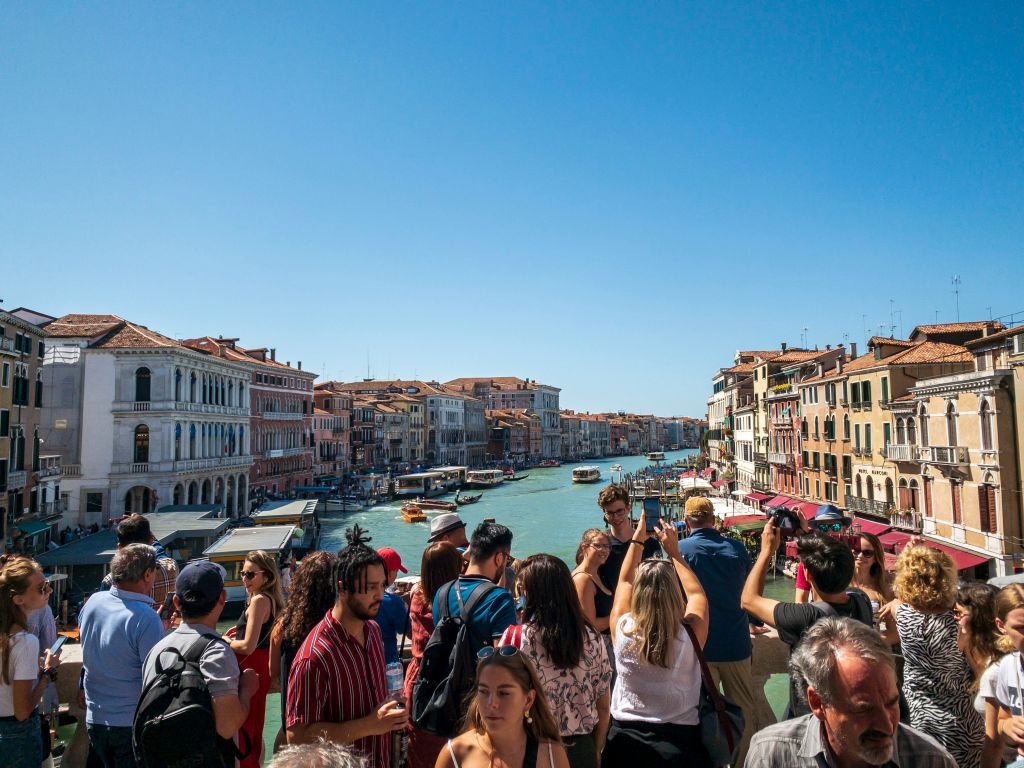Sustainability
Letter Handed to Italy’s Prime Minister Ahead of the U.N. Climate Conference Warns Venice Is Sinking Faster Than We Think
The waterlogged city faces a dire future, but could be the ideal laboratory for combating climate change.

The waterlogged city faces a dire future, but could be the ideal laboratory for combating climate change.

Amah-Rose Abrams

With world leaders gathering for the 26th United Nations Climate Change Conference (COP26) in Glasgow this weekend, a letter calling for a plan to protect Venice during the climate crisis was placed in the hands of Italian Premier Mario Draghi on Tuesday. The appeal from the Istituto Veneto di Scienze, Lettere ed Arti (ISVLA) was signed by the president emeritus of the institute, Gherardo Ortalli; its current president, Andrea Rinaldo; and fellow Anna Somers Cocks, former chair of the Venice in Peril Fund. Following worsening projections released in July by the Intergovernmental Panel on Climate Change, the letter calls for an action plan to save the vulnerable UNESCO World Heritage site.
“Serious humanitarian and ecological disasters are already being caused by climate change and these will worsen exponentially unless global warming is controlled,” the letter states. ”By comparison, the likely disappearance of Venice, as well as other sites whose beauty and history we take for granted, may seem a matter for the elite. The ISVLA believes, however, that it is not case of either/or, lives are, of course, paramount, but beauty, history and culture are indispensable too and, where possible, should be saved.”
The letter asserts that, contrary to popular assumptions, Venice’s structures are likelier to crumble into the sea before the city is submerged, and calls for water defenses to replace the current sea barrier, which was intended to be temporary. It goes on to demand the formation of an organization to tackle the issues facing Venice and come up with a comprehensive plan.
The letter has tipped off debates about prioritization and implementation. The NGO We Are Here Venice (WAHV) believes the signatories were right to write the letter, but also considers this point in time to be an opportunity to make Venice carbon-neutral, as an example for the rest of the world. Jane da Mosto, the executive director of WAHV, believes that with such measures as the introduction of hybrid-powered water buses, for example, a large impact could be made for a relatively small investment.
“Venice should be used to represent the model of resilience and sustainability, as the world addresses the climate crisis and has to find ways to save humanity, Venice could be a perfect laboratory for implementing new solutions to urban challenges,” da Mosto told Artnet News. “I think they call it the oldest city of the future.”
Indeed, Venice has become home to many organizations at the forefront of research and thinking on the climate crisis. The contemporary art association TBA21 Academy opened Ocean Space in the city in 2019 as a home for their exhibitions. Speaking of the decision to site their base of operations there, TBA21 Academy director Markus Reymann told Artnet News, “There is no better way to intervene with a cause that requires global collaboration and solutions than through a space that brings the international community together.”
Reymann believes that the ancient city is uniquely placed to be a leader in the push for change, thanks to its specific geography and circumstances, including swarms of tourists and cruise ships. “Historically, Venice has been a place for experimentation,” he added, “and exchange and could therefore be both encouraged and supported to take on the responsibility of becoming a daring, radically imaginative laboratory for possible ways forward, bringing together many disciplines bound together by culture.”
Artists from around the world have also lent their voices to call for more urgent action against the climate crisis; for COP26, they include installations by artist Mary Ellen Carroll and designer Steuart Padwick throughout Glasgow and a three-day online event hosted by Indigenous artists’ group Living Nature.